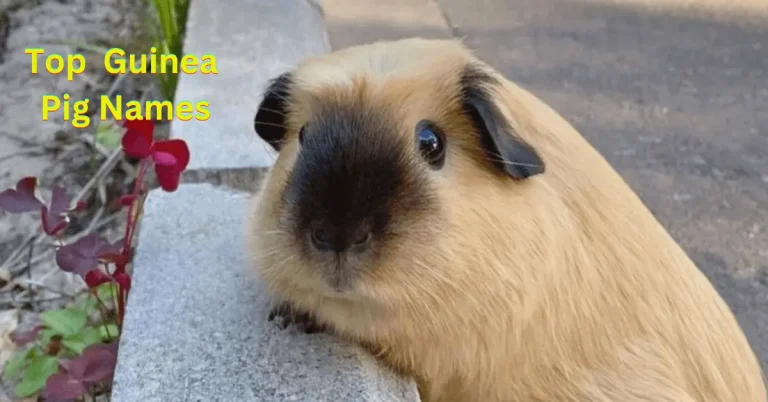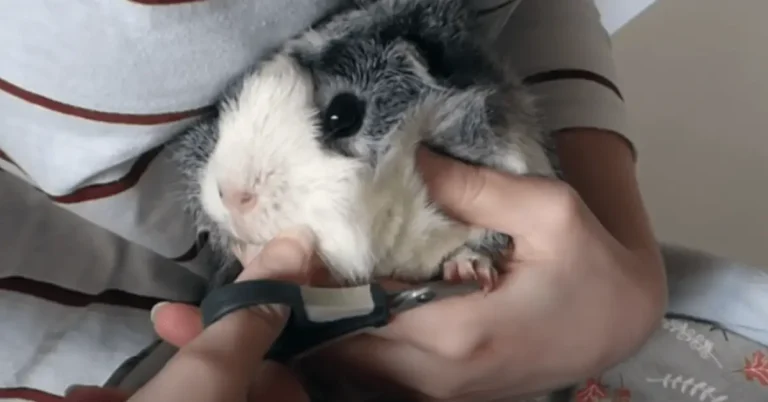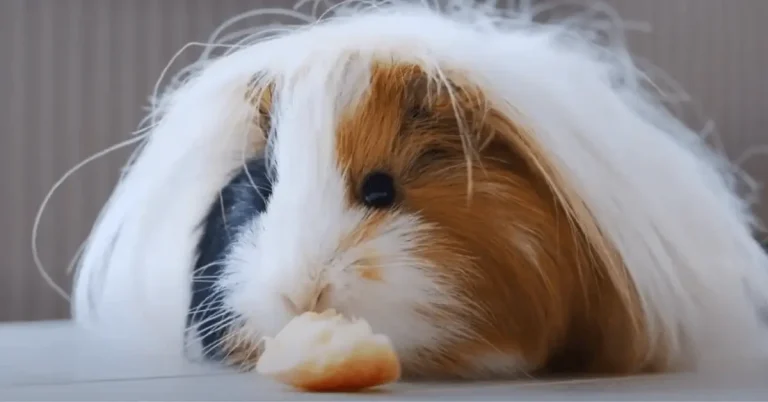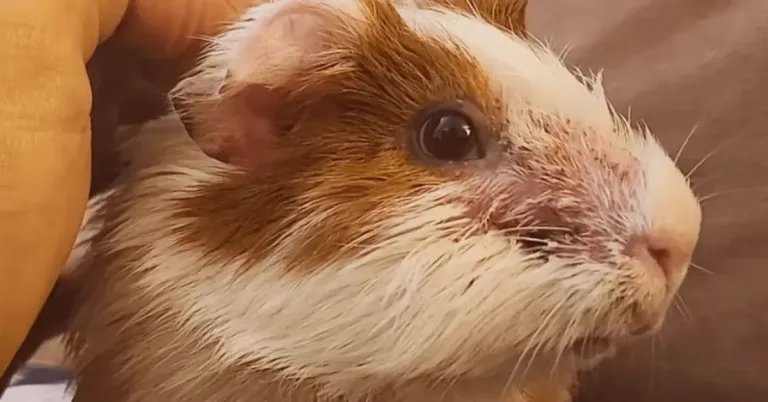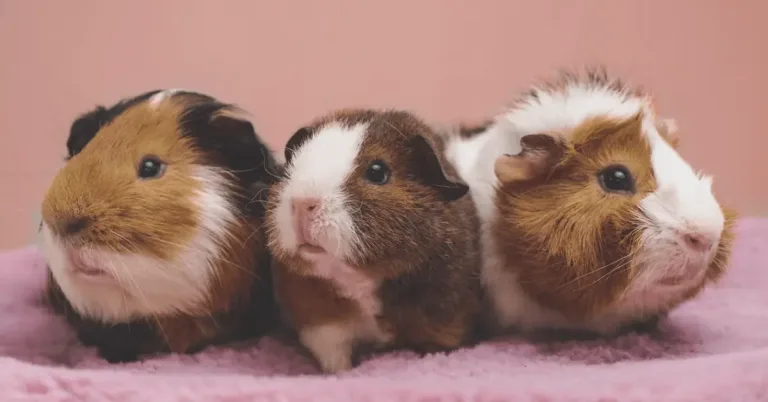How to Care for Guinea Pigs: A Comprehensive Guide; Guinea pigs are cute and friendly rodents that have become more and more popular as beloved pets in many homes. They are known for their special sounds and lovable personalities, making them great friends. But like all pets, guinea pigs need the right care to stay happy and healthy. In this detailed guide, we’ll explain everything you should know about taking care of these furry little friends.
Understanding Guinea Pigs
Before we go into all the details of how to take care of guinea pigs, it’s important to know a bit about their nature and characteristics. Guinea pigs, also known as cavies, originate from the Andes region of South America. They are naturally social animals, which means they enjoy being around other guinea pigs. These gentle creatures can live for about 5 to 8 years or even longer if they receive the proper care, making them a long-term commitment for pet owners.
Guinea Pig Varieties
Guinea pigs come in various breeds and coat types, each with its own unique charm. The most common varieties include:
American Guinea Pig
- Appearance: Short, smooth coat.
- Characteristics: Known for their easygoing nature and adaptability.
- Care: Regular grooming to maintain their coat.
Abyssinian Guinea Pig
- Appearance: Short coat with rosettes or swirls.
- Characteristics: Energetic and stylish in appearance.
- Care: Frequent brushing to manage their distinctive coat.
Peruvian Guinea Pig
- Appearance: Long, flowing coat.
- Characteristics: Graceful and elegant, known for their impressive fur.
- Care: Extensive grooming to keep their coat in good condition.
Skinny Pig
- Appearance: Hairless or nearly hairless with unique skin patterns.
- Characteristics: Distinctive appearance, requires special care for their skin.
- Care: Protection from extreme temperatures, regular skin maintenance.
Housing Your Guinea Pig
One of the first considerations when care for Guinea Pigs is their living environment. Guinea pigs require a spacious and well ventilated cage with a solid bottom to prevent foot injuries. The cage should provide enough room for exercise and exploration. For one guinea pig, a cage measuring at least 30 inches by 36 inches is recommended, while for a pair of guinea pigs a cage measuring at least 30 inches by 50 inches. The floor space is more important than height, as guinea pigs are not known for climbing.
when you provide them a cage provide your guinea pig with a small hideout or nest for a sense of security and some guinea pig toys for chewing and play. It’s also essential to place the cage in a quiet, draft free area away from direct sunlight. This is the best way to care for guinea pigs.
Substrate and Bedding
Guinea pigs require suitable bedding for their comfort and well being. Do not use wire grates, as they can harm your guinea pig’s feet. Instead of this use a 2 inches layer of paper bedding, steering clear of cedar and pine bedding, which can irritate your guinea pig’s respiratory system.

Care for Guinea Pigs; Diet and Hydration
There is an other important factor of care for guinea pigs is their diet and hydration. Guinea pigs are herbivores, meaning their diet consists of plants. They need access to hay at all times, which aids in digestion and helps wear down their continuously growing teeth. Additionally, provide a commercial pelleted food specifically formulated for guinea pigs. These pellets should be full of vitamin C because guinea pigs cannot produce this essential nutrient on their own. Fresh fruits and vegetables are also a vital part of their diet, but they should not exceed 10% of their total daily food intake.
Ensure proper care for guinea and access to clean water through a water bottle, which is less likely to become contaminated compared to a water dish.
Common Health Problems
While guinea pigs are generally hardy animals, they can be susceptible to some common health issues. These include:
Digestive Problems
- Causes: Bacteria, viruses, parasites, or antibiotics can affect their digestive system.
- Symptoms: Diarrhea, changes in appetite.
- Prevention: Provide a balanced diet and clean living conditions.
Eye Infections
- Causes: Scratches or unsanitary living conditions.
- Symptoms: Watery, crusty, or red eyes.
- Treatment: Prompt veterinary care and improving living conditions.
Scurvy
- Causes: A lack of vitamin C in their diet.
- Symptoms: Loss of appetite, bleeding gums.
- Prevention: Ensure a diet with sufficient vitamin C.
Overgrown Teeth
- Causes: Inadequate hay in the diet, resulting in overgrown teeth.
- Symptoms: Weight loss, changes in appetite.
- Treatment: Veterinary dental care and dietary adjustments.
Regular veterinary check-ups are crucial to catch and address health issues early.
Training Your Guinea Pig
Guinea pigs can be litter trained, enjoy regular exercise, and need grooming to keep their fur and nails in good condition. Spend quality time with your guinea pig to strengthen your bond and ensure their mental and physical well being. This is a way of care for guinea pigs this method helps your pig happy and healthy.
Care for guinea pigs need
Litter Training
- Equipment: Small litter box with short walls, different bedding from the rest of the cage.
- Training: Place the litter box where your guinea pig tends to relieve itself, reward when it uses the box.
Exercise
- Benefits: Prevents obesity and provides mental stimulation.
- Methods: Secure playtime outside of the enclosure, encourage movement within the cage.
Grooming
- Tools: Small, stiff brush or comb.
- Frequency: Weekly grooming, more for longhaired guinea pigs.
- Nail Care: Trim nails every two weeks.
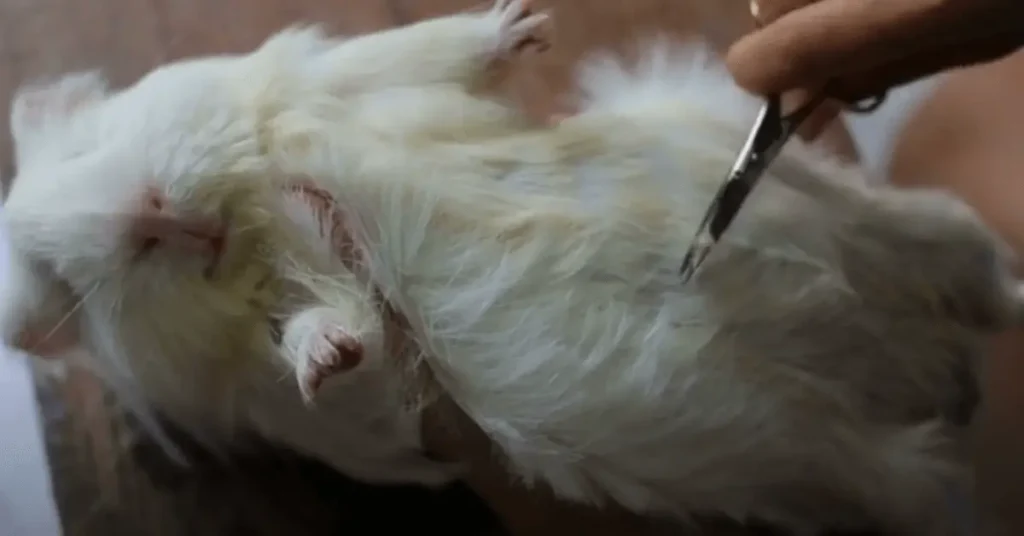
Upkeep Costs and Pros & Cons
An other important factor of care for guinea pigs is to be aware of the costs associated with guinea pig ownership. On a monthly basis, you’ll need to budget for food, bedding, and monthly replacement of nests and toys. Additionally, factor in the cost of annual veterinary check ups and potential emergency medical care.
Monthly Costs
- Food and Bedding: Approximately $40 on average.
- Replacements: Nests and toys, around $10 to $20.
- Veterinary Care: Annual check-up and potential emergencies.
Guinea pigs make wonderful pets, known for their quiet nature and minimal space requirements. They are entertaining, friendly, and some can be incredibly cuddly. However, it’s essential to consider that they are social animals, so keeping more than one is recommended.
Pros & Cons of Guinea Pig Ownership
Pros:
- Quiet and Low-Space Pets: Guinea pigs are quiet and don’t require much living space.
- Entertaining: Their charming behaviors and vocalizations are delightful to observe.
- Friendly and Cuddly: Many guinea pigs become attached to their owners and enjoy cuddling.
Cons:
- Social Animals: They are happiest when kept in pairs or groups, which can increase the cost and responsibility.
- Health Concerns: Guinea pigs are prone to certain health issues.
- Specialized Veterinary Care: You may need a vet experienced with guinea pigs for proper care.
Purchasing or Adopting Your Guinea Pig
when you feel easy and can care for guinea pigs and want a guinea pig, it’s advisable to adopt from a reputable breeder or rescue organization. These sources typically provide detailed information about the guinea pig’s background, health, and temperament. Additionally, they often handle their guinea pigs regularly, which helps keep them domestic.
Tip
Before getting a guinea pig, ensure there’s a nearby vet who can treat them since not all vets can.
Breeder Selection
- Active and Alert: Look for guinea pigs that are active, alert, and in good body condition.
- Tame Behavior: If the seller claims the guinea pig is tame or domestic, ask to handle it to ensure it relaxes in your presence.
To avoid accidental breeding, keep multiple guinea pigs in same sex groups. Some vets also offer spaying and neutering services for guinea pigs.
Frequently Asked Questions (FAQs)
1. Are guinea pigs suitable for kids?
Guinea pigs can make excellent pets for older children who are capable of handling them gently. Their docile nature and charming personalities make them a good choice for families.
2. How much time does guinea pig care require?
Guinea pigs require regular interaction and exercise, which includes handling and playtime outside of their enclosure. Daily feedings and weekly cage cleaning are necessary, making them a moderate time commitment.
3. Do guinea pigs like to be held?
Many guinea pigs can learn to be comfortable with handling and some even become quite cuddly. With frequent handling, they generally become tame and comfortable being picked up and carried around.
4. Can guinea pigs be litter trained?
Yes, guinea pigs can be litter trained. Using a small litter box with suitable bedding and placing it where your guinea pig tends to relieve itself can encourage them to use it. Consistent positive reinforcement is key to successful litter training.
5. Do guinea pigs need companions?
Guinea pigs are social animals, and it’s recommended to keep them in same-sex pairs or small groups to prevent loneliness and boredom. A pair of females is often the better choice, as two males may sometimes fight, especially if they are not neutered.
Key Takeaways
- Guinea pigs are charming and gentle pets known for their sociable nature.
- They come in various breeds and coat types, each with unique characteristics and care requirements.
- Providing a suitable living environment, balanced diet, and regular veterinary care is essential for their well-being.
- Guinea pigs are social animals, and companionship is important for their happiness.
- Handling, grooming, and regular interaction with your guinea pig strengthen your bond and ensure their mental and physical well-being.
- Being aware of the costs and responsibilities of guinea pig ownership is crucial for providing them with a happy and healthy life.
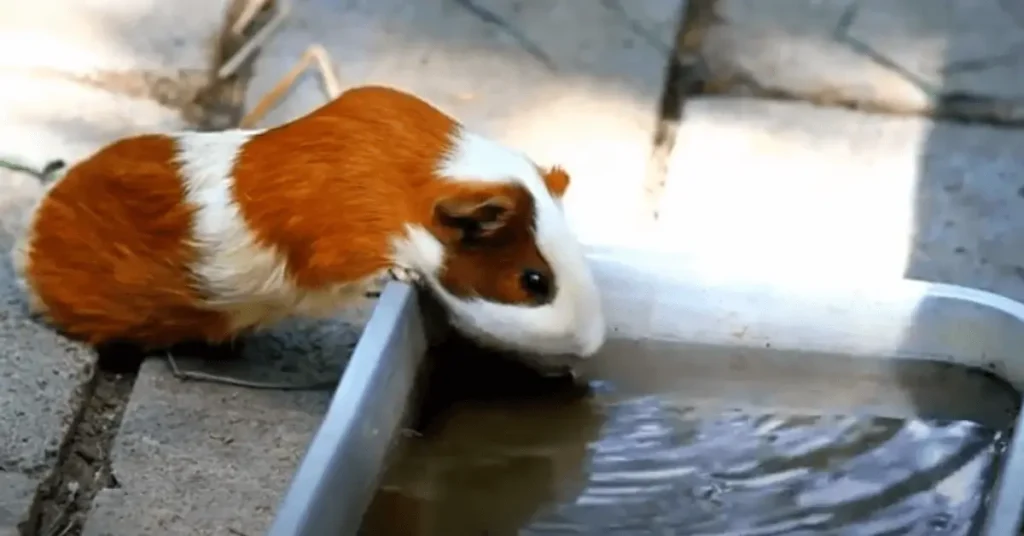
With the proper care and attention, your guinea pigs can bring joy and companionship to your household for many years to come.
Guinea Pig Adoption and Conclusion
When acquiring a guinea pig, consider adopting from a reputable breeder or rescue organization. These sources typically provide detailed information about the guinea pig’s background, health, and temperament. Additionally, they often handle their guinea pigs regularly, which helps keep them tame.
Selecting a guinea pig should involve assessing the animal’s health and behavior:
- Look for guinea pigs that are active, alert, and in good body condition.
- If the seller claims the guinea pig is tame, ask to handle it to ensure it relaxes in your presence.
To avoid accidental breeding, keep multiple guinea pigs in same-sex groups. Some vets also offer spaying and neutering services for guinea pigs.
Conclusion
Care for guinea pigs can be a truly rewarding experience. These charming and gentle pets, known for their sociable nature, can become cherished members of your family with the right care and attention. By providing them with a comfortable living environment, a well-balanced diet, and regular health check-ups, you can ensure that your guinea pigs lead happy and healthy lives as your loving companions.
Remember that guinea pigs are not just pets; they are beings with feelings and needs. By following the guidance provided in this comprehensive care guide and understanding their unique personalities, you can forge a strong bond with your guinea pigs, providing them with a life full of love and joy.


